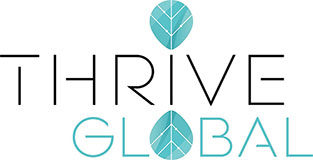
Money Matters: 5 Ways To Rethink Your Income
MichaelSunnarborg / May 23, 2017 Article, Image, Link / Leave a Comment
While facilitating a career transition group recently, the discussion of finding our life’s work surfaced. As the dialogue unfolded, the conversation turned toward the pros and cons of entrepreneurship versus traditional job employment—including the issue of money.
After the session, a member of the group approached me with questions. She was curious about how I had transitioned back into consulting after being laid off from a full-time job:
“So this is what you do now for work? Run this group?”
“Yes,” I replied. “It’s one of the things I do.”
She smiled. “Oh, so you get paid for this?”
“No.”
Her smile faded. “So…what exactly do you do for money?”
“I do many things,” I answered. “Some of which pay me in money; others pay me in knowledge, gratitude, or appreciation—like leading this group.”
She looked bewildered, her eyes widening. “But don’t you worry about money?”
“Nope. Money will always come and go,” I explained. “I just stay focused on what brings me satisfaction and the money always shows up, eventually.”
She then smiled kindly. “Oh cool.”
Whether it’s something we embrace or eschew, money is an essential part of our lives. And more critical than cash itself is what we think about those greenbacks. Our attitudes about abundance are far more important than the manifestations of it.
Many of our core beliefs about money come from our parents and family. Other money ideas have been implanted by friends and people we trust. Once we’ve established core beliefs, the momentum of these thoughts can be difficult to change.
Attitudes about money serve us well when they align with prosperity and abundance. But focus on lack and scarcity can work against us.
Reflecting on that earlier conversation, I realized that my relationship with money has changed over time. The key to this shift was learning to redefine the word income.
Dictionary.com cites a few definitions for the word income: The first as “monetary payment received for goods or services;” and another being, “a coming in” (duly noted as an archaic or antiquated definition of income).
So if income = coming in, we can assume that this means anything coming to us.
With this definition, it is easier to see beyond the dollars and cents. Income can be attention, validation, appreciation, or even a hug. When we are receiving anything, we are bringing it into our experience—it’s coming in.
If we can change our definition of the word income, we can also change our attitude about money. Like learning how to work with a boss we don’t like by deliberately recognizing what we appreciate about them, we can also find peace in our relationship with money.
Are you hot under the collar over finances? Try these tips to feel cooler about cash:
Understand the purpose of money. Money is currency for trade—the transfer of goods, ideas, and services. We spend money in exchange for an item or an experience we want. Similarly, we receive money in exchange for products or services. But this is only one piece of the pie. Giving and receiving money is an energetic transaction—and when we treat it as such, we can learn the value of spending and receiving energy wisely.
Go with the cash flow. Unless you have access to an inexhaustible supply (and if you do, please contact me), money ebbs and flows like ocean tides—sometimes we have more, sometimes less. Money comes in and money goes out. It is fluid, dynamic, and flexible. This is why we call some things “liquid” assets. We can also learn to delay our gratification by setting money aside for special events or rainy days.
Build your non-monetary capital. Since money involves energetic transactions, become creative about how you value your life. Count all your income sources: relationships, volunteer opportunities, learning experiences, and other non-monetary capital. We can build our future by nurturing new relationships, expanding our networks, and making new connections. Sometimes our best investments have no cash value.
Invest in yourself. Like investing money, pouring energy into ourselves can pay off. Volunteer to enrich your perspective, learn a new skill, explore a passion, or start a new hobby—all of which can lead to new opportunities and create new streams of both emotional and financial income. In addition, continue to make investments in your personal assets: family, home, friends, life, and job. All will produce large dividends in the long run.
Trust the process. When we trust that things are always working out for us in the best way, then there’s no need to be afraid of the ebb and flow of money in our lives. Worry only pushes things away; trust helps us to release resistance. Treat money as a gift. When we appreciate that money puts food on our table and gas in our tank; buys food, clothing, and experiences; and brings us new opportunities to learn and grow, then we will be open to receive money more easily. And then money can flow more freely in and out of our experience.
Michael Thomas Sunnarborg helps people maintain balance during transitions in their work, relationships, and life. Learn more at michaelsunnarborg.com
Image: Pixabay.com



